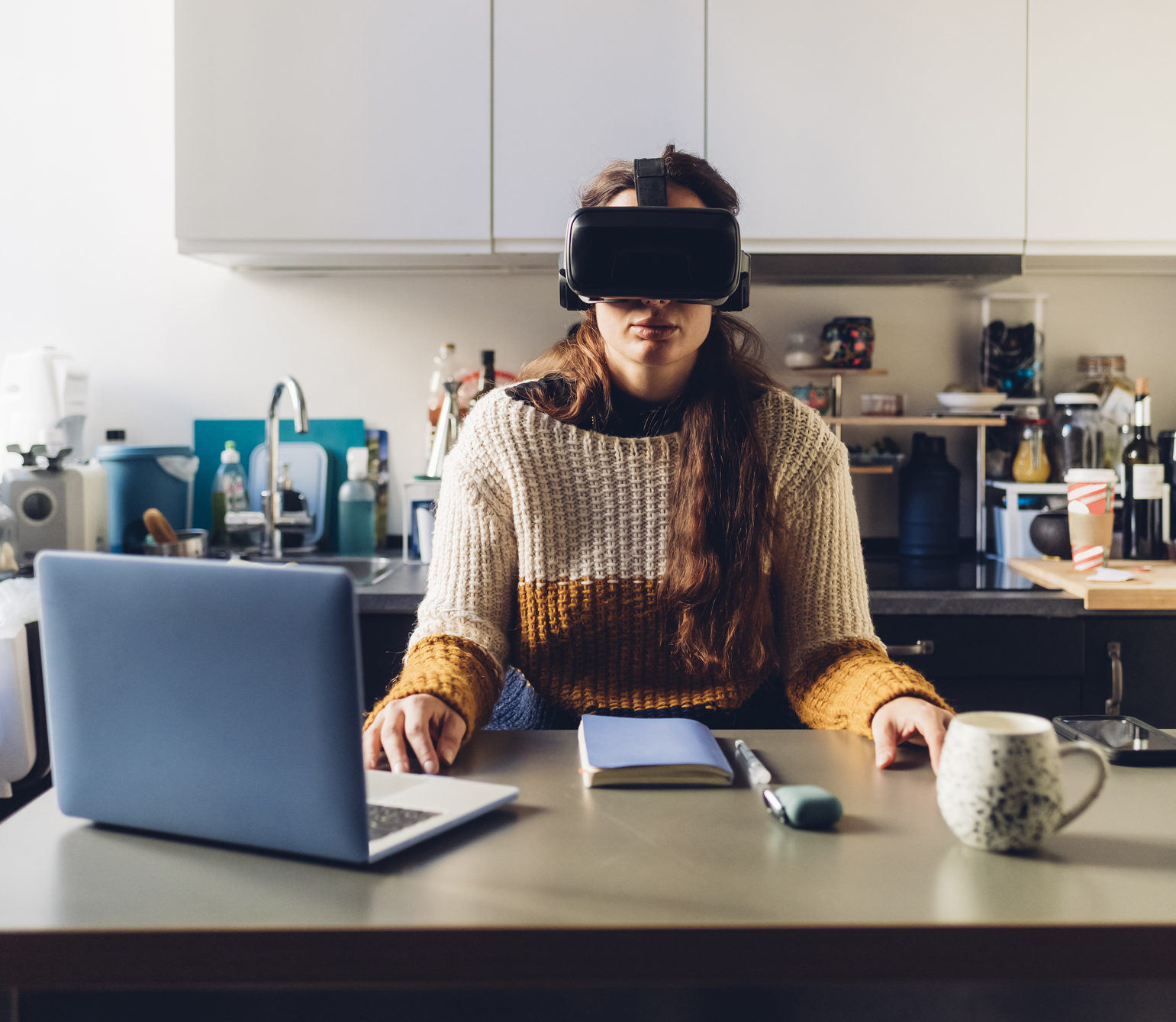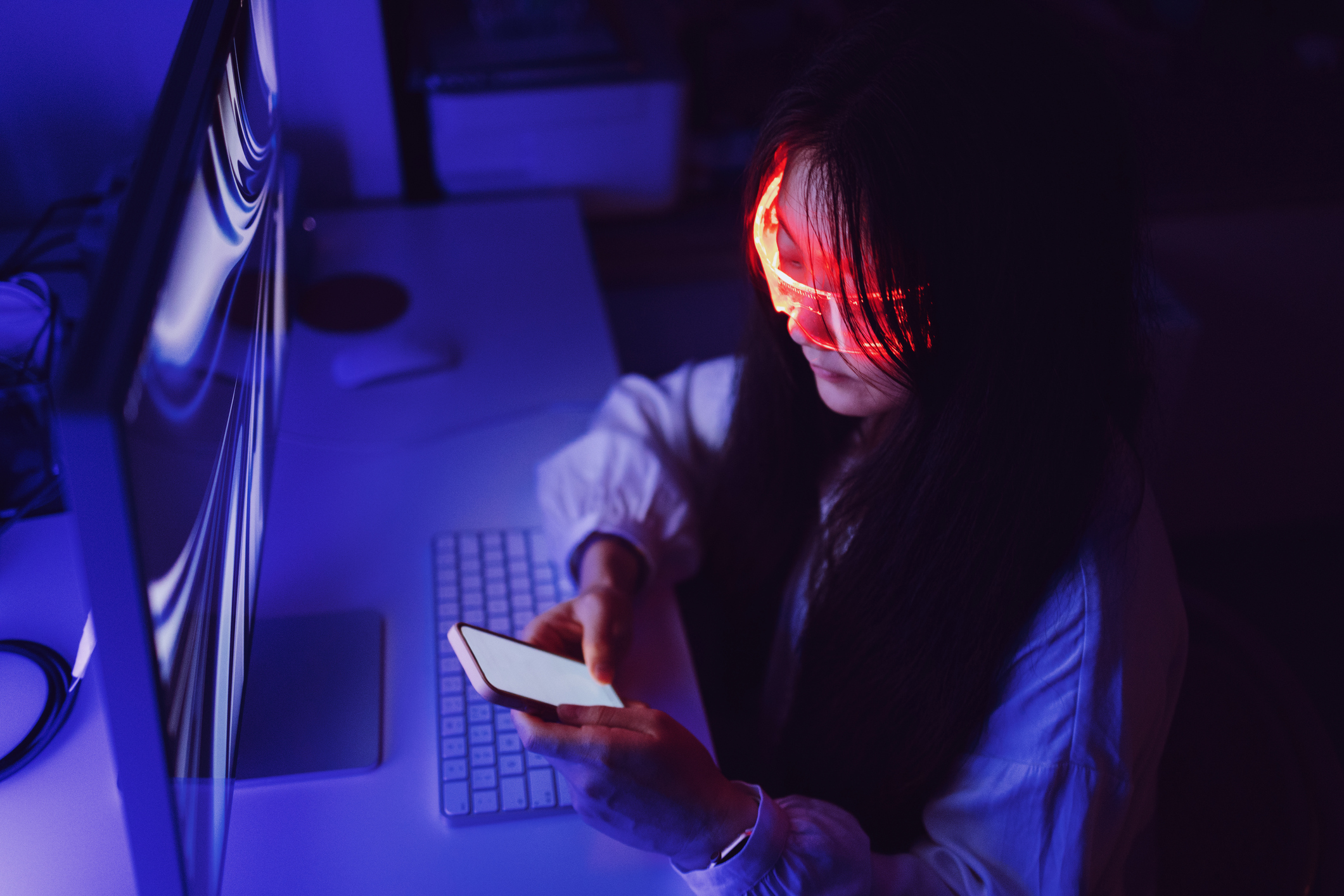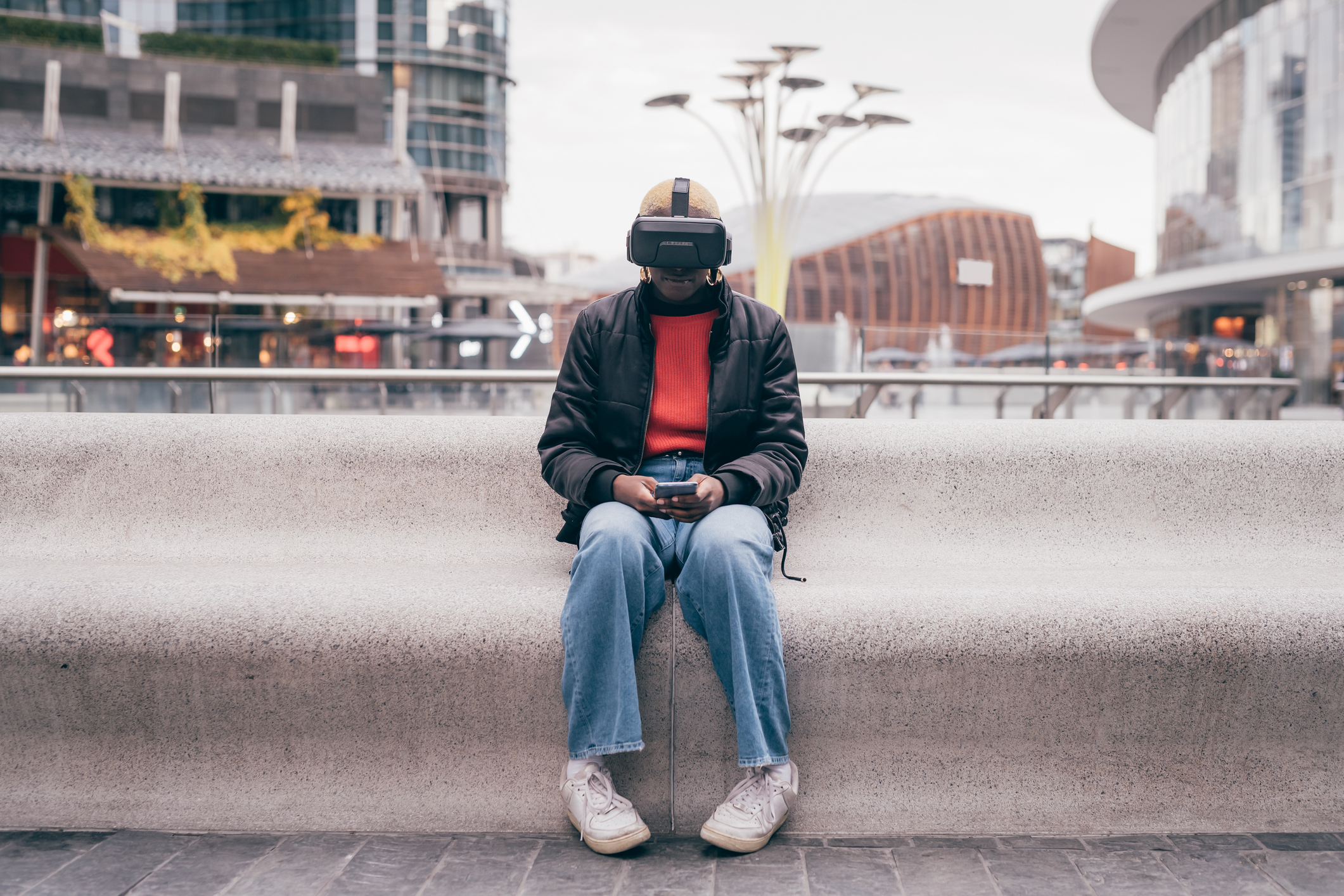‘I was raped in the metaverse’
Being immersed in VR is supposed to be fun, but how safe is it? Closer speaks to one woman whose experience left her traumatised…

Virtual realities can feel real
When a new metaverse was launched called Horizon Venues, psychotherapist Nina Patel was keen to try it.
The owner of a company which teaches adults and children about safety in the metaverse, Nina was well versed in trying out VR worlds. But when she logged on, she was quickly approached by a gang who sexually harassed and assaulted her avatar.
Nina, 45, says, “I know it wasn’t a real-world assault, but it was a traumatic experience.”
In December 2021, Nina was alone at her home in London, waiting for her children to get back from school.
Horizon Venues had just launched, which allowed friends and family to meet up virtually, and with 20 minutes to spare, Nina slipped on her VR headset.
She says, “I gave my avatar blonde hair like me and put her in a long purple dress. Then I looked in the virtual mirror and waved my arms to test it. When I moved, my avatar moved, and it was even able to match my facial expressions, which is called embodiment.”
Then she went to a portal which beamed her to a space where there were other avatars. There were several rooms to choose from, each with a different activity like playing basketball or going to a concert. Nina says, “While I was looking around at what was on offer, three male avatars suddenly approached me and used sexually aggressive language. They said things like ‘We’ll give you what you want,’ and before I knew it, they were surrounding me. One of them reached out and put their hands on my avatar’s breasts, while another one put a hand over my mouth. They were smiling and I could hear a voice behind me, but I couldn’t see what they were doing. I yelled at them to stop and to get off, but they ignored me. I managed to get away, but they ran after me and got me cornered.”

Nina had a harrowing experience
Nina’s experience, shockingly, wasn’t unique, as instances of sexual harassment in virtual spaces have been reported by 49 per cent of female users.
She says, “While they all continued touching me, a fourth male came towards us and showed me some photos he’d taken of the attack. It meant the person behind the avatar was taking screenshots of it. Then the one in front started doing a thrusting motion against my avatar, mimicking sex, and said ‘Don’t pretend you’re not enjoying it.’ When I realised they weren’t going to stop, I ripped my VR headset off.
“They’d approached me within 60 seconds of going in and it all happened so quickly, that afterwards I was confused and bewildered. When I took my headset off I thought ‘What just happened?’ I was flush and my heart was racing. There was no doubt in my mind that my avatar had been sexually assaulted and I immediately blamed myself, wondering if I’d somehow provoked them. Because I froze during it, I felt ashamed that I hadn’t done more to stop them. I burst into tears.”
“I thought about how I’d feel if it had happened to any of my kids and I knew I had to go public. I realised my attackers must’ve planned it,” says Nina.
Tomer Poran from software development company ActiveFence tells Closer, “Detecting harms, especially ones generated by bad-actors that come to a platform with the intent of doing harm, is a difficult task which platforms big and small have struggled with for over a decade for a variety of reasons.”

Women and children are at risk
When Nina spoke out, Horizon Venues, which became Horizon Worlds, implemented a change. “They added an optional Personal Boundary feature, so that strangers can’t get within four feet of your avatar. But even if that had been an option for me, I wouldn’t have had time to turn it on before I was attacked.”
Nina says, “Some people take advantage of their anonymity in the metaverse to commit crimes without facing repercussions, and in some spaces being aggressive or violent is even rewarded. I’ve since read about a teenage girl who was raped in the metaverse and reported it to the police, though it never crossed my mind to do that. But my experience did traumatise me, to the point where I now only go into virtual spaces where I can be in a private world with friends and family. People saying things like ‘Why didn’t you just turn your headset off?’ doesn’t address the real issue, which is that there aren’t enough safety measures in place to prevent assaults happening in the metaverse, particularly to women and children. Studies show that when a traumatic event happens in a virtual reality, the body experiences the same physiological effects as if it were real.
“The metaverse is supposed to be an enjoyable immersive experience, and for most people it is, but companies should have a responsibility to look after their users,” she says. “Even before my assault, my company gave educational workshops in schools about how to be safe in the metaverse, but now that message is more personal. My ordeal has spurred me on to raise even more awareness and try to prevent people going through what I did.”
PHOTOS: GETTY
Read more from Closer

Meghan and Harry’s last resort ‘therapy’

The sexy secrets behind Sofia Vergara’s dirty divorce
